Earth
Sign up for our newsletter
We summarize the week's scientific breakthroughs every Thursday.
-
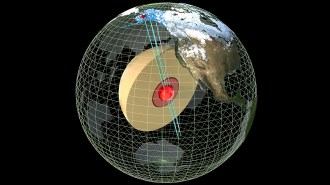 Earth
EarthEarth’s inner core may be more complex than researchers thought
Seismic waves suggest that Earth has a hidden heart, a distinct region within the solid part of the planet’s core.
-
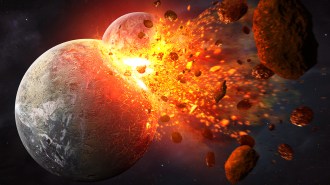 Earth
EarthA moon-forming cataclysm could have also triggered Earth’s plate tectonics
Deeply buried remnants of a hypothetical planet that slammed into Earth 4.5 billion years ago might have set subduction into motion.
By Nikk Ogasa -
 Agriculture
AgricultureDry farming could help agriculture in the western U.S. amid climate change
Some farmers in the western United States are forgoing irrigation, which can save on water and produce more flavorful fruits and vegetables.
-
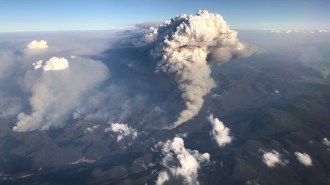 Climate
ClimateHow wildfires deplete the Earth’s ozone layer
Scientists detail the chain of chemical reactions that occur when wildfire smoke enters the stratosphere.
-
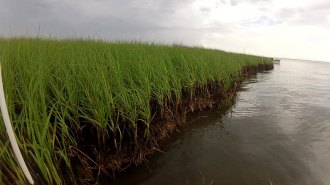 Environment
EnvironmentThe Deepwater Horizon oil spill ruined long-term shore stability
For at least eight years, the oil disaster continued to kill soil-retaining marsh plants along the Louisiana coast, accelerating shoreline loss.
-
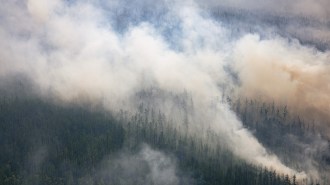 Climate
ClimateWildfires in boreal forests released a record amount of CO2 in 2021
Boreal forests store about one-third of the world’s land-based carbon. With wildfires increasing there, fighting climate change could get even harder.
By Nikk Ogasa -
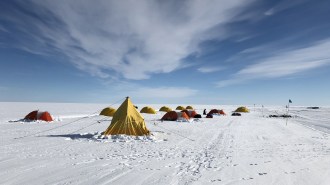 Climate
ClimateMany Antarctic glaciers are hemorrhaging ice. This one is healing its cracks
Scientists have explored the recesses of an Antarctic glacier that is currently stable, helping improve predictions of the continent’s fate.
By Douglas Fox -
 Climate
ClimateAn incendiary form of lightning may surge under climate change
Relatively long-lived lightning strikes are the most likely to spark wildfires and may become more common as the climate warms.
By Nikk Ogasa -
 Environment
EnvironmentAir pollution made an impression on Monet and other 19th century painters
The impressionist painting style can be partly explained by the reality of rising air pollution from the industrial revolution, an analysis finds.
By Bas den Hond -
 Climate
ClimateGreta Thunberg’s new book urges the world to take climate action now
Greta Thunberg's ‘The Climate Book’ covers the basic science of climate change, the history of denialism and inaction, environmental justice and solutions.
By Erin Wayman -
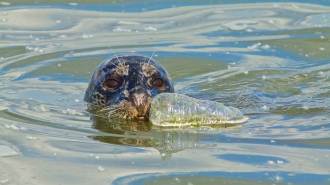 Oceans
Oceans50 years ago, scientists discovered the Great Pacific Garbage Patch
In 1973, plastic bottles adrift in the North Pacific alarmed scientists. Fifty years later, more than 1.8 trillion pieces of plastic litter the area.
By Demian Perry -
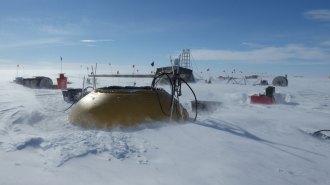 Climate
ClimateRapid melting is eroding vulnerable cracks in Thwaites Glacier’s underbelly
Thwaites is melting slower than thought, but the worst of it is concentrated in underbelly cracks, threatening the Antarctica glacier’s stability.
By Douglas Fox